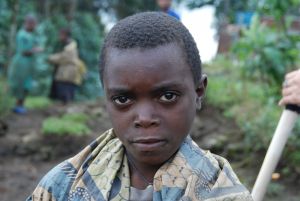The study has just been published in the prestigious international Journal of Conflict Resolution.
Dr Karen Brounéus' study of 1200 Rwandans demonstrates that the truth-telling process entails risks, and no evidence was found to support the common claim that truth-telling is healing; in fact, the act of retelling experiences of deep grief and trauma was more likely to worsen mental health.
"This study suggests that witnessing may have a worsening effect on post traumatic stress disorder (PTSD) and depression because of the nature of witnessing in truth-telling procedures; it involves a type of short and intensive trauma exposure that has been found to be re-traumatising in previous psychological research," she says.
The study was carried out in 2006 and involved 1200 Rwandan survivors, gacaca judges and neighbours from East, South, West and Kigali Provinces – areas severely struck by the 1994 genocide. Of the 1200 interviewees, 1009 had a close family member killed during the genocide, 857 were forced to flee their homes and 832 had property destroyed or lost.
The gacaca courts (traditionally based village tribunals) were initiated by the Rwandan government in 2002 as a way to promote justice, unity and reconciliation in the conflict-ravaged nation. The gacaca still takes place in every village in Rwanda, and involves a panel of nine judges, accused perpetrators, witnesses and the assembled villagers as audience. It is the largest officially-driven truth and reconciliation process in the world today.
In Dr Brounéus study, the interviewees were asked questions related to their background, exposure to traumatic events during the genocide, and questions related to symptoms of depression and PTSD.
Among the survivors, the prevalence of PTSD was "exceedingly high" at 51 per cent; while 60 per cent met the criteria for depression.
Moreover, the risk of having depression was more than 50 per cent higher in gacaca witnesses compared to non-witnesses. The relative risk of having PTSD was also doubled, with 19 percent for non-witnesses and 36 percent for witnesses.
In spite of the disconcerting results, Dr Brounéus believes truth-telling processes may serve an important function for peace-building:
"Even though truth-telling may not be healing in the sense that it was thought to be, there can be important benefits of other kinds, for example by raising awareness and restoring a sense of justice and truth in society. However, to lessen the risk of negative side-effects of post-conflict truth-telling processes, it is important to have realistic expectations of what the process can do for peace and for the individual participants."
Dr Brounéus, who worked as a clinical psychologist before beginning her doctorate, conducted the research for her PhD in peace and conflict studies at Uppsala University in her native Sweden. She has moved to Otago with a view to conducting similar research in the Solomon Islands, which has also been marred by violent internal conflict.

